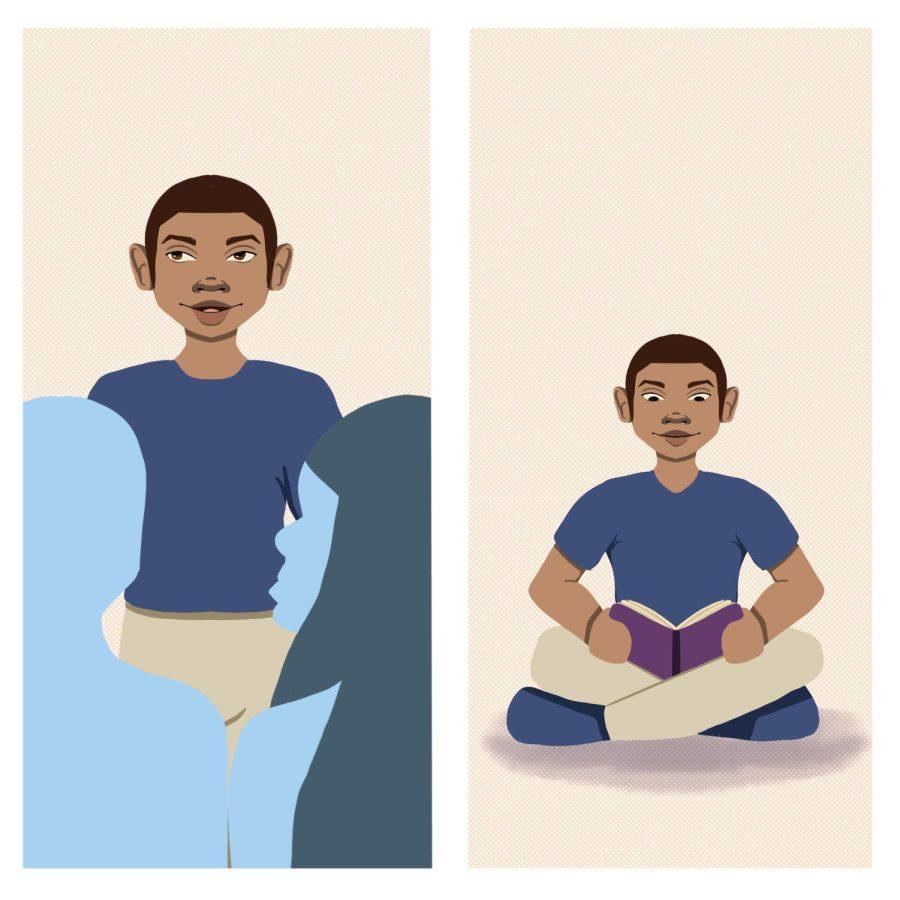Opinion | Spending time alone is important, especially for your mental health
November 9, 2022
Today’s society is overly focused on constantly moving and always working. We are consistently surrounded by others whether it is in social situations, at work or at home. With mental health continuing to increase and affecting our population, society needs more awareness of ways to help ourselves. A simple way is to spend some time alone.
I am an extroverted person — however, as someone who also has introverted tendencies and struggles with mental health issues, I need alone time.
There is a stigmatization and misunderstanding of people who regularly spend time alone. Our society always pushes for social interactions, but spending time by yourself is crucial for personal growth and mental wellness. Alone time is essential for individuals to recharge, prioritize what is important to them and check in with themselves.
Alone time plays a pivotal role in maintaining one’s mental health by allowing individuals to tap into their feelings and process complex experiences. Spending time with yourself allows you to revel in your authentic self and not worry about others. It also allows you time to consider the people you are surrounding yourself with and whether they are the types of people you want around. A 2014 study conducted by psychotherapist and author Emily Roberts demonstrated that embracing alone time is an important aspect for building strong self-esteem. Those who embrace solitude as a form of self-care and therapy experience more confidence and positive feelings about themselves. Stress and anxiety arises from uncontrollable forces, so alone time allows one’s mind to unwind, combat exhaustion and process their feelings and thoughts.
As someone with mental health issues, alone time is essential for maintaining my personal wellbeing. Once I committed to setting aside time for myself in my daily and weekly routine, I noticed that my symptoms of anxiety and depression reduced and things became more manageable. One of my closest friends acknowledged the difference in my demeanor and pointed out how much happier and relaxed I seemed overall. Organizing my schedule around personal time helps fight anxiety and eating disorder symptoms and — occasionally — reduces the amount I procrastinate, which creates less anxiety in the long run.
It’s especially important to have personal time since social interactions are highly complex due to the prevalence of social media. It is almost impossible to fully withdraw ourselves from others as the nature of social media and technology leaves us connected to others at all times. Constant connection can create blocks when it comes to fully decompressing and allowing yourself time away from societal pressures and influences. To fully have alone time, one should completely unplug and not have distractions from any source, including phones and social media.
Spending time alone is frightening and causes feelings of isolation, but carving out time for yourself in a way that works best for you helps to decrease these emotions. Spending time with yourself does not have to turn into an isolating experience, rather it is a chance for you to mindfully put yourself at the top of your priorities.
Everyone has varying social needs and others may not relate to how you personally need or spend your alone time. Setting boundaries with those around you and yourself is imperative in making sure you have the alone time you personally need. Telling your family members, roommates or partner that you need some time to yourself is important in making sure that others around you understand the necessity of your alone time.
There is not always ample time in my day, week or schedule to figure out time for myself outside of completing school work. Striking a balance between spending time with others socializing, whether it is with already established friends or classmates, and time for myself is a struggle. I eventually realized in college that I need to make space for alone time. Even extroverts need a chance to recharge themselves and can become exhausted from overstimulation and social interactions.
Creating boundaries is one of the most difficult things I’ve ever done, but something I realize is necessary. Realistically, though, I do not do it enough. I always make a busy schedule for myself so that I’m constantly distracted and can ignore the relapses of symptoms. Realizing the importance of alone time and the positive benefits I now make sure to set boundaries with myself to ensure that I am taking care of my health.
I am not claiming that I’m an expert on coping with mental health issues, creating boundaries or determining what the right way to spend your alone time is — currently a lot of mine consists of watching “Gilmore Girls.” I am just urging you to reconsider the importance of spending time with yourself. I was not at all convinced at first, but now I fully support that alone time is necessary in living a healthy life.
Emily O’Neil writes primarily about societal issues, politics and campus life. Write to her at [email protected].








